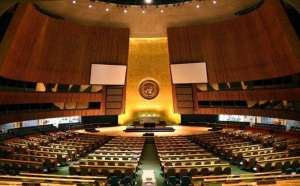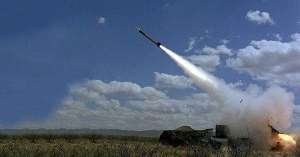Romania has privatized the distribution and the supplying of electricity and natural gas, influenced by the financial international institutions, but had no benefits from these actions, says Dan Radu Ruşanu, the president of the Budget Finance and Banking Commission of the Chamber of Deputies. Under these circumstances, why should the authorities continue with the program for the privatization of the profitable companies, including those in the energy sector, deputy Ruşanu asked the representatives of the joint mission of the IMF, the European Commission and of the World Bank.
Liberal MP Ruşanu greeted his guests with a harsh speech, in which he said: "Despite the fact that the state is a bad manager, we can't help but note that the energy privatizations have lots of issues when it comes to making the investments which the buyers were required to make. The companies went for the profit to the detriment of improving the services provided to consumers. These companies which we call private are actually owned by other states. And then, why should we privatize the profitable companies, such as Transgaz, for instance? They would need to be de-leeched and made more efficient. We should privatize the losing companies, such as CFR Marfă".
He also had some very harsh comments on the reforms from between 2009-2010, which cut the wages of employees in the public sector and raised the VAT: "We have seen that in spite of the sacrifices made, Romania did not prosper. Raising taxes in times of crisis and cutting wages was a huge mistake. And the IMF, at the time, agreed to these measures. It's true that the IMF did not impose these measures, but it accepted them. Romania must have a budget deficit like the one that Germany runs, to truly develop".
Or, in the budget for 2011, the deficit is lower than it was in 2011. In 2011, the delegation of the IMF said that it agreed, on principle, to allow the major infrastructure investments to exceed the deficit. And nothing further happened".
Upon such an attack, the head of the IMF mission, Erik de Vrijer, replied, just as harshly and visibly angry, that the accusations were unfounded and asked for the press to be removed from the meeting room of the Budget and Finance Commission: "I understand that you have reasons to make these statements and accusations, but if you want the meeting to be productive I want to ask you to hold it in the absence of the press, like you promised".
Parliamentary sources say that the speech of the Head of the Budget Commission of the Chamber of Deputies, which took the representatives of the IMF to task, was not intended to spark a major debate over the privatizations and the listings and on the role of the state in the energy sector, but rather the position of head of the Financial Oversight Authority (ASF), which he wants. The quoted sources are saying that liberal deputy Ruşanu wants the presidency of the ASF, which is why he made this speech which would endear him with the public. The MPs of the opposition were commenting ironically that after what he said, Dan Radu Ruşanu will most definitely lose the support for the management of the ASF.
On the other hand, last week political sources told us that the helm of the Financial Oversight Authority (ASF) went to the PSD.
After the three hours of talks with the representatives of the IMF, Erik de Vrijer did not want to speak to the press anymore, but Dan Radu Ruşanu said: "At the end of the meeting, the MPs of the power and those of the opposition have agreed that there is a need for a new agreement with the IMF and to continue the new one. Thus, Romania will have a lower borrowing cost, and foreign investors will continue to have confidence in the Romanian business climate. As for the privatizations, I personally am not convinced that we should sell or list profitable companies, until we make them efficient by removing the "leeches" from them. The people of the IMF support the listings and the privatizations claiming that the companies will have more funds available and they will have more money for investment and they will be more competitive".
The MPs and the representatives of the IMF have agreed to that Romania needs to speed up the absorption of European funds and to make the management of state owned companies more professional.
• Ialomiţianu: "If no progress is made within two months, the agreement with the IMF will be suspended or permanently terminated"
The agreement with the IMF will be suspended or permanently terminated, if no progress is made within two months, PDL deputy and former Finance Minister Gheorghe Ialomiţianu said.
He explained: "There is this risk that the IMF wants to see concrete progress concerning the structural reforms, namely the privatization and streamlining of state owned companies. The government has two months".
Deputy Ialomiţianu, who is part of the Budget Commission of the Chamber of Deputies, called the speech of Dan Radu Ruşanu as one of "electoral campaign": "It is hypocritical to criticize the austerity measures, when the Government needs the IMF to be able to finance itself at good interest rate. The USL government now has the agreement with the IMF under its belt. Without those measures, there would have been no premises for raising pensions and salaries. The budget for this year is built around a VAT rate of 24%".
He claims that the MPS of the ruling coalition changed their tone once the press left the meeting room of the Chamber of Deputies: "They have become more conciliatory, once they realized they are no longer on TV, and they said that the fact that the current agreement is being extended and that a new agreement will be concluded. But the three institutions want firm commitments and progress in the coming two months. The government has asked for the extension, but the moment the board of the IMF approves this, the structural reforms will need to be made, including the privatizations".
Dan Radu Ruşanu says that the risk mentioned by Gheorghe Ialomiţianu is not real, because the Government is decided to implement the measures assumed as part of the agreement with the IMF: "And the message of the IMF is an optimistic one, as the representatives of the IMF are confident that the Government wants and will implement the assumed measures".
In the beginning of yesterday's meeting with the deputies, Erik de Vrijer said that the IMF wants the Government to implement the projects which it puts on paper.
























































